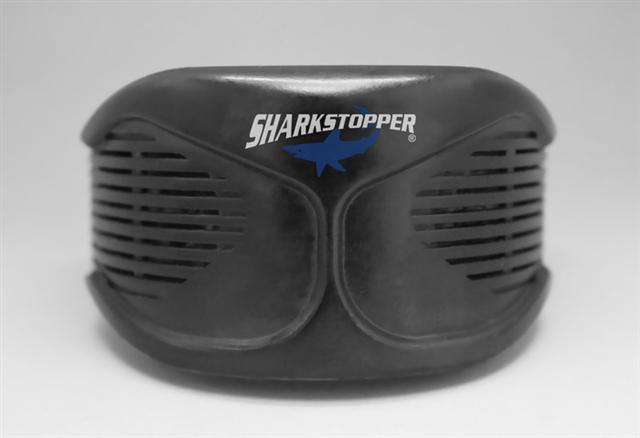Even though sharks are not exactly the cause of most human deaths per year (according to an infographic I saw recently, that would be the mosquito), finding ways to keep them away from populated beaches is always welcomed. SharkStopper is a an anklet that employs acoustic signals to keep the sharks at a distance.
One of the greatest feats of the ShartStopper is that it emulates the sounds emitted by killer whales. That signal is combined with the developer’s proprietary sound signature in order to instill fear in the sharks. In other words, if until now we used to be scared of these creatures, with the help of this device, we can easily assert our dominance.

As explained by the developers of this device, “SharkStopper® is a durable, lightweight device that will be manufactured with the latest green plastics technology to withstand the elements for years. The SharkStopper Personal Shark Repellent (PSR) device is about the weight of a smartphone and is powered by a rechargeable battery that can be charged via any USB port or USB Wall Charger. The device also has protection from overcharging, so you don’t have to worry about ruining your battery!”
SharkStopper is currently featured on Kickstarter, where its developers are trying to raise $48,500 within the next 44 days. Supposing that the project gets funded, anyone who pledged $225 as an early bird or $275 as a regular backer will get their SharkStopper in December 2014. Readers from the Northern Hemisphere might claim that that’s an odd time to deliver such a device, but they should keep in mind that December marks the beginning of the summer down under. My bet is that most orders will be placed from Australia and New Zealand, anyway, so that’d be the perfect season.
Like it or not, in the not so distant future, there won’t be any shark attacks. At that point, the action of Jaws will get more difficult to understand and to explain to our children.
Be social! Follow Walyou on Facebook and Twitter, and read more related stories about how Australian sharks went social and tweeted when nearing the shore, and the Tuit security ring that uses NFC to unlock your smartphone.










